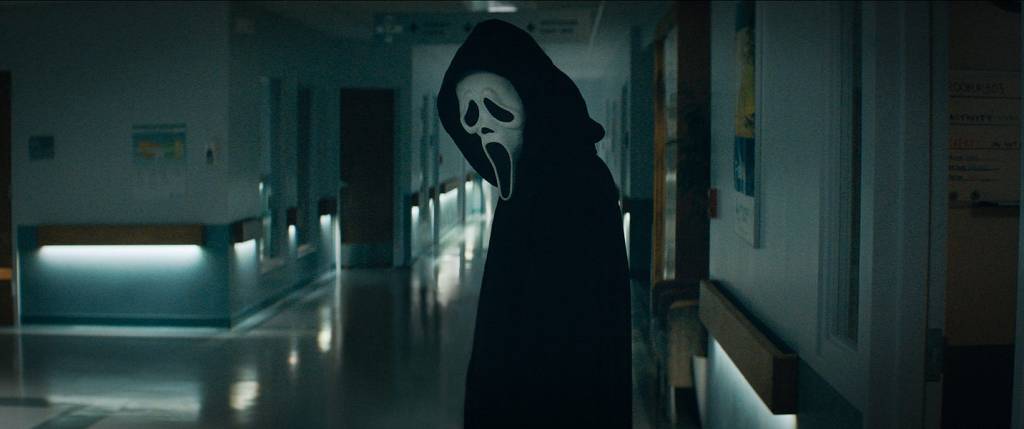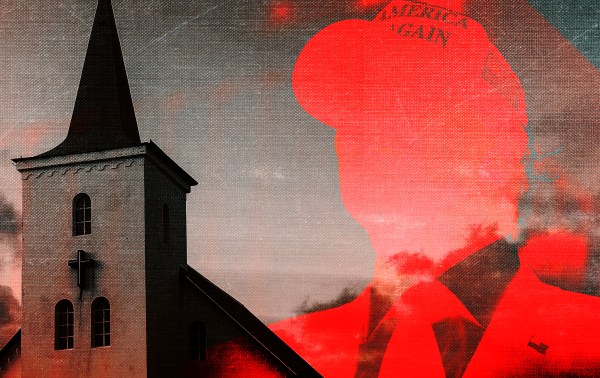For a horror franchise, Scream has been surprisingly consistent over the years. The original movie from 1996 remains a remarkably adroit piece of filmmaking defined by memorable characters, grisly scares, and inspired satire on the trappings of its genre. Scream 2 has aged similarly well, and despite a third instalment riddled with ill-conceived ideas, the series seemed to conclude respectably in 2011 with an enjoyably schlocky fourth film that provided updated laughs and frights for the iPhone generation. The death of series director Wes Craven in 2015 seemingly ensured that no further sequels would be produced. But with Hollywood currently exploiting nostalgia for all available properties, a new Scream has arrived. Unfortunately, it bears greater resemblance to a Halloween-themed throwaway episode of Dawson’s Creek than the masterful original to which directors Matt Bettinelli-Olpin and Tyler Gillett are so obviously devoted.
A “requel” in the mold of 2018’s Halloween, Scream (note the absence of a five) attempts to combine reverence for the past with meta-commentary on the present to push the franchise forward. In the familiar town of Woodsboro, California, a new killer has donned the signature Ghostface costume and is butchering local residents. The murders revolve around a group of high school friends who, torn between terror and an urge to party, attempt to survive by abiding by the rules of scary movies. As the body count increases, they become increasingly suspicious of one another, while misdirections obscure the killer’s identity.
All of this may sound awfully familiar, but the joke is that the plot of this new film and the original are indistinguishable. The thing is, Scream 4 pummeled that joke into the ground more than a decade ago. Almost all of the heavy-handed social criticism contained within that film on subjects ranging from the laziness of remakes to the vapid nature of online culture is repeated here, and none of the new observations offered are remotely insightful or challenging. When Scream’s characters comment on the strangeness of fandom in the internet age or the film industry’s preoccupation with the past, they provide all the incisive wit of an angry Reddit post. And while Scream 4 made a modest effort to prod at popular horror of the moment, Scream’s references amount to little more than empty name drops.
Scream combines returning characters—among them Sidney Prescott (Neve Campbell), Dewey Riley (David Arquette), and Gale Weathers (Courtney Cox)—with a new cast of Gen Z and millennial actors. The point, allegedly, is to lampoon that same trend in franchises ranging from Star Wars to Ghostbusters. Again, though, the script offers nothing deeper than a few knowing lines that barely warrant a smirk, and it fails to obscure the fact that screenwriters James Vanderbilt and Guy Wusick are as reliant on nostalgic gimmickry as those they wish to parody. A fundamental aspect of the plot makes so little sense and reeks of such desperate fan service that I giggled whenever it appeared, and the many references to previous movies seem awkward. The killer’s motivations are the most ridiculous of any instalment, but my interest dissolved long before Ghostface’s mask was removed.
Scream’s performances are largely lackluster. Campbell and Cox are serviceable but have little to work with. Arquette is surprisingly compelling and easily the most likable actor present, but his role is equally limited. The young stars are uniformly bland, devoid of notable qualities besides a shared fondness for snarky one-liners, and although some of the jokes hit, the dialogue too often feels like the product of a first draft in need of a punch up. Bettinelli-Olpin and Gillet’s direction delivers a few nice surprises (a murder sequence in broad daylight, for instance, is spectacularly inventive and the highlight of the film), including a relentless sense of pace. Ghostface’s kills are even more brutal than usual (shockingly so at times), Roger L. Jackson’s voice is as wonderfully menacing as ever, and the phone call scenes possess most of their typical charm. But buckets of additional gore can’t compensate for the film’s drab visuals, or the absence of Wes Craven’s stylish grasp of camera trickery and skill at ensuring characters behave in realistic ways. Scream’s second half is plagued by “yell at the screen” moments where characters make utterly asinine decisions purely to place themselves in vulnerable situations, a genre hallmark that the original film was shrewd enough to subvert. An absurd scene in a hospital is an especially egregious offender, layered with so many lapses in logic that it manages only to frustrate rather than frighten.
Ultimately, Scream is a colossal let down; an eye-rolling exercise in thin postmodernism that unfolds like a crude work of fan fiction. As a commentary on contemporary cinema it has nothing interesting to say, and as a self-tribute it simply feels embarrassing, particularly in its forced final act. Bettinelli-Olpin and Gillett squandered an opportunity to advance the series in an exciting new direction, instead opting to pander to veteran fans while relying on self-awareness to cover their tracks. The result is a film caught in limbo that will offer nothing to audiences when viewed years in the future alongside its predecessors. Don’t answer the phone: You may die from disappointment.






Please note that we at The Dispatch hold ourselves, our work, and our commenters to a higher standard than other places on the internet. We welcome comments that foster genuine debate or discussion—including comments critical of us or our work—but responses that include ad hominem attacks on fellow Dispatch members or are intended to stoke fear and anger may be moderated.
With your membership, you only have the ability to comment on The Morning Dispatch articles. Consider upgrading to join the conversation everywhere.